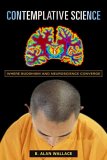 "You might try looking at all the stuff that comes up in your head as just a secretion. All our thoughts and feelings are a kind of secretion. It is important for us to see that clearly. I've always got things coming up in my head, but if I tried to act on everything that came up, it would just wear me out. Haven't you ever had the experience of being up on a very high pace and having the urge to jump? That urge to jump is just a secretion in your head. If you felt that you had to follow every urge that came into your head, well..." -- Kosho Uchiyama, Opening the Hand of Thought
"You might try looking at all the stuff that comes up in your head as just a secretion. All our thoughts and feelings are a kind of secretion. It is important for us to see that clearly. I've always got things coming up in my head, but if I tried to act on everything that came up, it would just wear me out. Haven't you ever had the experience of being up on a very high pace and having the urge to jump? That urge to jump is just a secretion in your head. If you felt that you had to follow every urge that came into your head, well..." -- Kosho Uchiyama, Opening the Hand of Thought
Science has long treated religion as a set of personal beliefs that have little to do with a rational understanding of the mind and the universe. However, B. Alan Wallace, a respected Buddhist scholar, proposes that the contemplative methodologies of Buddhism and of Western science are capable of being integrated into a single discipline: contemplative science.
The science of consciousness introduces first-person methods of investigating the mind through Buddhist contemplative techniques, such as samatha, an organized, detailed system of training the attention. Just as scientists make observations and conduct experiments with the aid of technology, contemplatives have long tested their own theories with the help of highly developed meditative skills of observation and experimentation. Contemplative science allows for a deeper knowledge of mental phenomena, including a wide range of states of consciousness, and its emphasis on strict mental discipline counteracts the effects of conative (intention and desire), attentional, cognitive, and affective imbalances.
Just as behaviorism, psychology, and neuroscience have all shed light on the cognitive processes that enable us to survive and flourish, contemplative science offers a groundbreaking perspective for expanding our capacity to realize genuine well-being. It also forges a link between the material world and the realm of the subconscious that transcends the traditional science-based understanding of the self.
Howard Gardner, proponent of multiple intelligences, envisions 5 minds for the future: The five minds—disciplined, synthesizing, creating, respectful, and ethical—differ from multiple intelligence in working in a more synergistic fashion as opposed to separate categories of intelligences. Tip of the hat to Al Fin.

No comments:
Post a Comment